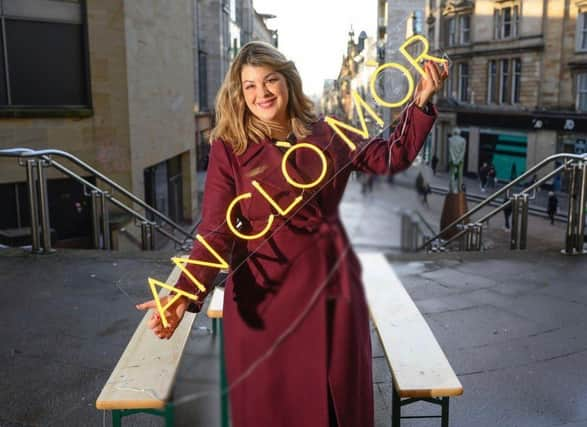Digital crucial to future of BBC Alba


Mr Morrison was addressing a meeting of the Digital, Culture, Media and Sport Committee in Westminster on Tuesday, who are currently gathering evidence on the Draft Media Bill, which is intended to create a better framework for publicly-funded broadcasting in the new digital environment.
BBC ALBA was established in 2008 and has an annual budget of around £24 million, £9 million of which comes from BBC Scotland.
Advertisement
Advertisement
However, that has remained relatively static for a number of years as it has not been index-linked, while costs have substantially increased across the board and the industry is having to respond to new challenges, such as moving to online services and competition from streaming platforms.
Mr Morrison told MPs on the committee that he was appointed chair of MG ALBA in January.
"But when I went in and lifted the bonnet I was quite shocked by what I saw,” he said. “By 2026, we will be down to 50 per cent of the spend capability that the channel started with. That is clearly unsustainable.”
He appeared in front of the committee alongside Elin Morris, Chief Operating Officer, S4C, and Clare Sumner CBE, Director, Policy, BBC. The Welsh channel S4C has a budget of around £90 million and Mr Morrison called for “parity of esteem”.
Advertisement
Advertisement
He recommended that the Bill should include a clear commitment that “there will be a Gaelic channel”, giving it the same legal protection as its Welsh equivalent.
The Draft Bill is intended to overhaul long-established legislation in relation to broadcasting and make it more suitable for the digital age, so that original, publicly-funded content can be accessible and compete in the future.
Mr Morrison said that many broadcasters were now adopting a “digital first” strategy and that, too, was the aim of MG ALBA.
"We’ve seen already that there has been a drop off in audience numbers for BBC ALBA, particularly among the young as they are moving away from linear television towards digital,” he said. "But that has a cost.
Advertisement
Advertisement
"Digital has huge potential for minority languages like Gaelic – there are real opportunities there – but if you can’t find the content there then there is a danger it becomes irrelevant.”
Mr Morrison said that MG ALBA faces two major challenges simultaneously, neither of which they will be able to address without a rebalancing of the budget.
They hope to restore the original commitment of three hours of “original” content on the channel every day – that has now fallen to 1.7 hours due to funding constraints – and embrace the “digital first” strategy to ensure they have a young audience going forward.
"But,” he added, “if we don’t have the budget for that, then we have a very serious issue.”
The Draft Media Bill followed the publication of a White Paper which set out the Government’s vision for the industry.